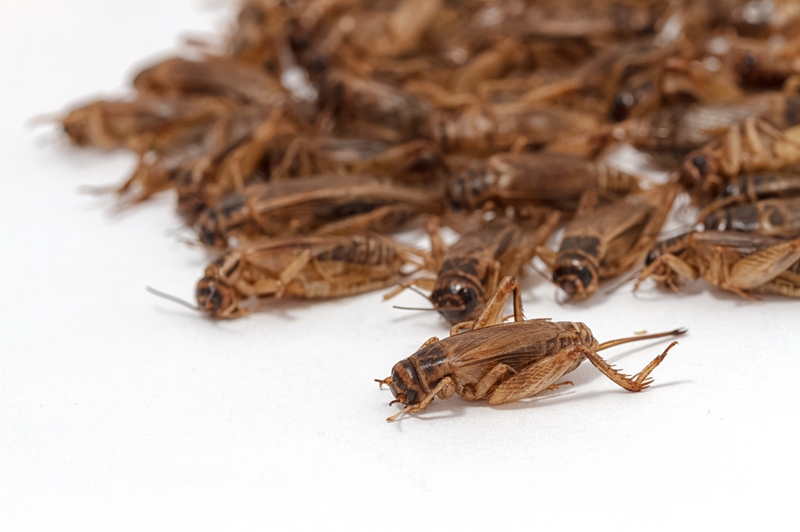Edible insects could be the key to a more sustainable food system, yet Novel Food Regulations could be restricting alternative environmentally-friendly sources of protein for consumers, a new report has found.
The report from the UK Edible Insect Association (UKEIA), produced with support from the University of Sheffield’s Institute for Sustainable Food, aims to help the Food Standards Agency review the UK Novel Food Regulations.
The research shows that current regulations impose an extremely high barrier to entry for edible insect companies, potentially restricting the sector’s potential to contribute to a more sustainable food system.
With an increased focus on finding solutions to tackle climate change, insects can provide an alternative and environmentally sustainable source of protein relative to other sources such as conventional meat which are widely considered to be unsustainable.
There is a growing number of insect species that have been extensively researched for their potential for human consumption. The report’s review of the current scientific literature found that following strict farming and production practices will result in edible insect food ingredients with no more risks than those of commonly eaten foods such as chicken, pork, or shellfish.
The report argues that effective and science-led standards developed with the sector and a licensing requirement for farmers will provide thorough protection for consumers.
Professor Peter Jackson, Co-Director of the Institute for Sustainable Food at the University of Sheffield, said: “Feeding a growing population is a major challenge, so as well as reducing meat consumption and promoting a higher intake of fruits, vegetables and pulses, other innovative approaches that work to increase the consumption of alternative sources of protein such as insects, are also needed.
“This independent review of the evidence surrounding the safety of insect consumption comes at a crucial time when the UK’s exit from the EU presents a unique opportunity to review the current legislation on novel foods and to propose some alternatives that are consistent with the scientific evidence and proportionate to the foreseeable risks.”
Until recently, the UK has followed European legislation on novel foods such as insects, with the Food Standards Agency (FSA) following the rules set by the European Food Safety Authority (EFSA). Brexit has provided an opportunity to change the legal requirements in ways that are more proportionate to the known risks of eating insects.
Dr Mike Foden, from the Institute for Sustainable Food at the University of Sheffield, said: “Food safety authorities are worried about the introduction of any novel food due to their potential health impacts, but there is evidence that any similar risks of production to more commonly eaten foods such as chicken, pork, or shellfish can be mitigated by good production methods.
“Insect-based foods have not been as widely available in European countries as they are in other parts of the world. They are not a familiar part of European diets, but they can be consumed in processed forms such as burgers, nuggets, or mince, which are more familiar to European consumers.
“The so-called ‘yuck’ factor is often associated with consuming insects but this tends to be exaggerated when compared to familiarity, availability, cost and taste which are factors that apply to any new food product.”
The UK has the potential to build a substantial hub of insect farmers and food product innovators but will require a significant change in the regulation of the sector. This is why the UKEIA are campaigning to adjust the legislation on insects, and the review, conducted in collaboration with the University of Sheffield’s Institute for Sustainable Food, aims to show how the safety of insect-based foods can be ensured so they can potentially become part of UK diets, as they have in other parts of the world.
Aaron Thomas, Chair of the UKEIA Board and Co-Founder of Yum Bug, said: “I believe that insects have a critical role to play in creating a sustainable future food system. The Novel Food regulations in the UK have provided a substantial challenge to our sector’s innovation and growth, which we feel is disproportionate to the risks to consumers.
“Yum Bug has successfully introduced tens to hundreds of thousands of consumers to edible insects and have absolutely no reason to think any have come to harm. We strongly endorse the suggestions for a more balanced approach to protecting consumers and offering more sustainable food options.”


